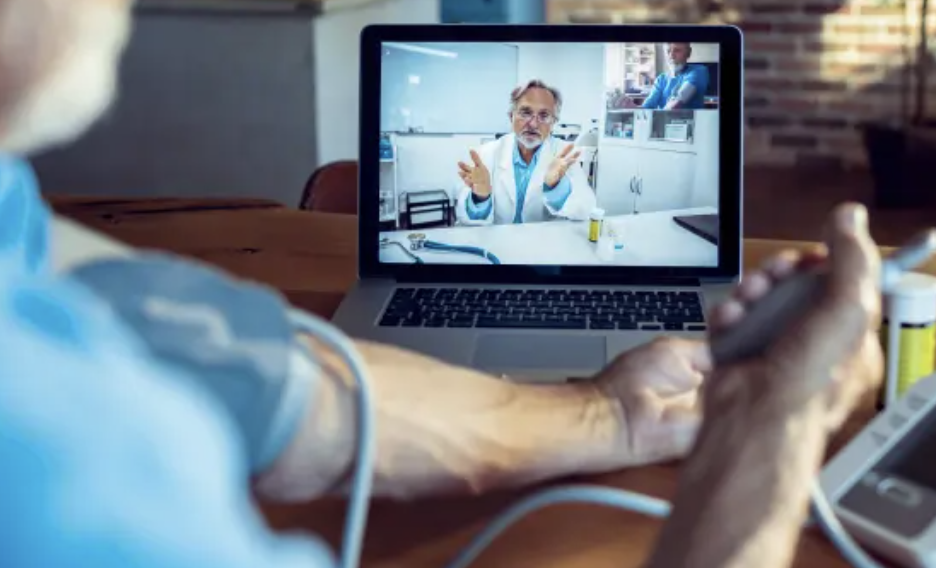The poll is now live. Maybe we can find harmony of opinion for a change. Question: are you satisfied with talking to a machine and not a person?
I could bore you with the number of times I have talked to a machine this year; I won’t. Mostly it involved reservations to do this or that.
But recently I had a medical procedure that put me in touch with doctors or their offices. No, put me in touch with their machines. Machines and software are increasingly replacing those who used to understand the anxiety that comes with the need (real or perceived) to talk with a human. Or, at least those humans who at various stages of the engagement can converse with understanding and empathy. Or simply help you take the next step.
I spent much of my late career life with businesses that used machines and software. I headed a venture fund in new media and later had the pleasure of using new media to start a jazz festival in Easton. I understand the push for efficiency and pinpoint marketing and the corresponding motivation to work with machines that don’t talk back as employees are prone to do. But patients want somebody to talk back. And many patients are confused when caught up in software navigation prompts.
What I also understand is that companies like Amazon and Google (and there are dozens of them) make very large capital investments in what is for them the crucial customer interface. If it fails, their businesses fail—simplification is crucial.
Medicine is different. Customers are called patients. And doctors are trained to be patient and caring. Presumably they work with their staff to perform similarly. We know, for example, that nurses are often the most caring and similarly perceived. But to one degree or another there are giant walls of machines called the Cloud that stand between the patient and the caregivers. And unlike the Amazon or Google machines and software, my experience is they don’t work very well.
I presume the machines are also a key element in medicine’s economic consolidation. Scale it is called – rather than a handful of people that do administrative, testing and consultation work, there is a bank of machines that can handle the patient until he/she actually shows up at the office.
The end result is oligopoly medicine. In many places, mostly not here, individual medical practices and related centers for this and that are rolled up into one relatively large organization. Impersonal follows. While University of Maryland Shore Health is the dominant provider on the Eastern Shore, access to medicine is also provided by the Anne Arundel health care system. And, for highly specialized needs, Johns Hopkins is a relatively short drive away.
I too am fortunate because I lived here before the machines and consolidation took over. I have enjoyed the best of medicine and importantly, personal contact. I can compare and contrast. Without putting too fine a point on this narrative, I would suggest doctors, not software engineers, create best practices. I am certain that best practices will result in caring conversations at a quite early moment in the engagement between doctor and patients.
Post Script: I decided to share an early draft of this column with my friend and neighbor Dr. Harry Greenspun and ask him to add to my comments. This is his reply:
Regarding “Customers being called patients,” in the last 10-20 years that has evolved to thinking about patients as consumers, since they are only patients when under care. We now talk about Patient Experience (while under care), Consumer Experience (while selecting providers, practice loyalty, health choices, etc.), and Member Experience (dealing with your insurance company). Alongside that is Employee Experience, since overworked, undertrained staff won’t operate safely, courteously, or deliver high quality. Rather than take a holistic approach, health systems and medical practices (increasingly private equity-backed) often chase individual metrics of each, focusing on Net Promoter Scores or burnout in isolation. Sadly, most organizations take this “Whack-a-Mole” approach to what are systemic challenges.
In some ways your (sadly common) experience reflects that. Poorly implemented phone systems (theoretically deployed to streamline office operations) degraded your consumer experience, while poor employee experience degraded your patient experience. Most people equate their experience, not outcomes, with quality of care. Thus they would give up and find a new provider. Conversely, there are plenty of people who continue to go to a doctor or practice they love regardless of the quality of the care or outcomes.
Finally, you mentioned Johns Hopkins for “the most threatening conditions.” As someone who trained and practiced there, it is an extraordinary place. However, data frequently show that highly-regarded academic institutions (which may excel at complex and rare conditions) produce only average results for many common diagnoses, usually at a much higher cost. These run the gamut from knee replacements to bypass surgery. The (unofficial) slogan of one of Hopkins’ counterparts was “If you’re sick we’ll kill you, but if you’re dying, we’ll save you.” Patients/consumers often mistakenly equate a lofty reputation with high quality care, and suffer the consequences. Perhaps substitute “the most specialized care” for Hopkins.
Al Sikes is the former Chair of the Federal Communications Commission under George H.W. Bush. Al writes on themes from his book, Culture Leads Leaders Follow published by Koehler Books.



Beryl Smith says
Have you ever screamed at a machine while alternatively saying “agent” “representative” or “real person”? I have. And it is one of the most frustrating experiences when I am in need of assistance.